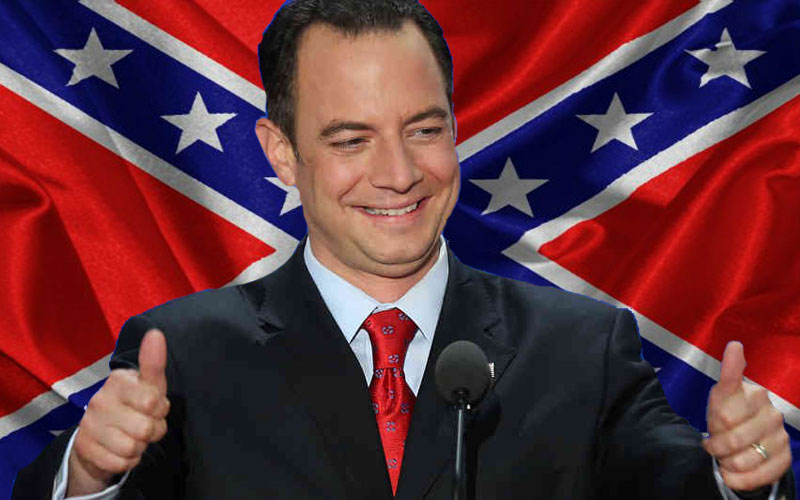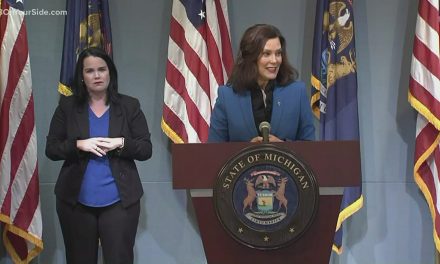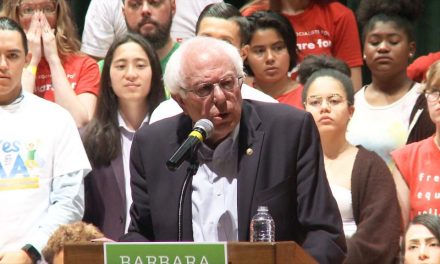John Harwood has an article in today’s New York Times with the headline: Shut Out of White House, G.O.P. Looks to Democrats of 1992. What’s not clear is whom the headline writer means by G.O.P. As best as I can tell, the subject here isn’t any of the likely candidates or any kind of consensus from the party base. It’s these people:
“A lot of work to do,” said Kate O’Beirne, a veteran conservative commentator. Pete Wehner, who was an aide to President George W. Bush, fears that Republican gains expected in the midterm elections this fall will offer another “false dawn,” as they did in 2010.
Kate O’Beirne and Peter Wehner are not representative of the Republican Party. They are Washington insiders who are well paid to spin the party’s message. But they aren’t so much spinning at the moment as hoping for a miracle.
A nominee’s power to recast the party’s image on high-profile issues offers a safety valve for Republicans in 2016, whatever they do now on immigration or other issues. At least, they hope so.
As Ms. O’Beirne, the conservative commentator, observed hopefully, “A talented politician can turn things around pretty handily, right?”
Mr. Wehner and Ms. O’Beirne are in no way representative of their party, but they are both savvy political observers who realize that the direction the Republican Party is headed is destined for political ruin. Their salvation idea is that a candidate will win the nomination and then turn sharply to the middle, thereby bringing the party faithful back to positions that have national viability.
A parallel is offered by Harwood:
But Mr. Clinton, then governor of Arkansas, used discretion in targeting Democratic constituencies such as labor unions. He embraced ratification of the North American Free Trade Agreement, for instance — but not until he had secured the Democratic nomination.
So, what we are supposed to expect is a Republican nominee who embraces gay marriage and immigration reform, but not until they have secured the Republican nomination. The thing is, this is a seemingly impossible task. To pull it off, the GOP would need to find a candidate like Dwight D. Eisenhower who could be embraced for reasons entirely separated from political ideology. A consensus bipartisan national hero could conceivably win the Republican nomination and then feel free to forge a completely independent stance on the issues, resulting in a remolded party that isn’t wedded 100% to the conservative movement, particularly on social issues.
It’s a pleasant thought, even for Democrats, but there are no Eisenhowers in contemporary American culture. In 2012, we saw a version of what Wehner and O’Beirne are looking for in the candidacy of former Utah governor and ambassador to China, Jon Huntsman. In the end, Huntsman earned two delegates to the Republican National Convention and .04 percent of the primary vote.
So far, the only evidence that any entity that can be termed the “GOP” is looking to emulate the 1992 Democrats led by Clinton and the Democratic Leadership Council is the autopsy report that RNC Chairman Reince Priebus solicited after the 2012 election. That report said that Republicans must pass comprehensive immigration reform and embrace gay equality or they’ll be unable to even get a hearing from young voters or Latinos. Assuming that analysis was valid, and I think it was, there has been little progress so far and there are no reasons to think that a nominee running on those issues would have snowball’s chance in hell of winning the Republican nomination.
The only sign of heterodoxy I can detect is Rand Paul’s uneven willingness to buck the status quo on foreign policy, privacy rights, and voting rights. But let’s not forget that Rand Paul is on the record as believing that the Civil Rights Act of 1964 is unconstitutional because it forces private businessmen to serve blacks in their restaurants.
That’s not exactly a Sister Souljah moment. And I don’t think dissing Sister Souljah was key to Clinton’s success in any case.







